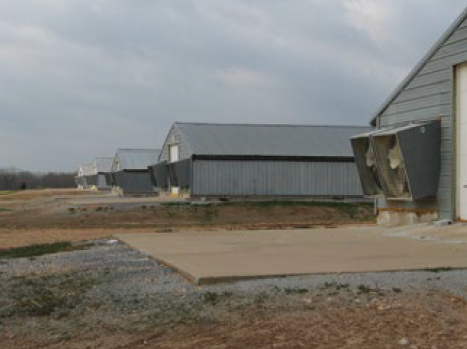
Trends
Controlling Insects in Poultry Production
To read more content about AviNews September 2024
Trends
To read more content about AviNews September 2024
Content available at:
Indonesia (Indonesian) Melayu (Malay) ไทย (Thai) Tiếng Việt (Vietnamese) Philipino
Pests can cause significant losses to production by reducing productivity and transmitting diseases. Some insects can also cause physical damage including structural damage to the houses. Breeder operations can be impacted by many insect species but the primary issues are caused by flies, beetles, and ants.
Insects are attracted to poultry operations as food, water, and habitats are readily available.
Mechanical means of control (traps) are an option and should be part of an insect control program.
However, good management practices along with a prevention program are the most effective ways to prevent insect infestations.
Professional pest control companies have experts that can readily evaluate situations and help develop a good pest management program.
Once established, good record keeping is a valuable tool to identifying and mitigating pest issues before they become an infestation problem.
To prevent an insect infestation, it is crucial to control moisture. Insect eggs and larvae require moisture to hatch and survive, so it is important to keep the house environment dry. Likewise, eliminate potential food sources.
Consider the following points:
1. If darkling beetles are an issue, leave the litter in the house for at least one day and treat it with an effective insecticide. The beetles will come out in mass once the birds leave the house so control needs to take place quickly.
After removing the litter, cover it to keep the insects out of the litter and to contain others until it can be removed from the farm.
2. Ensure that the house drains well and is ventilated correctly to prevent wet litter. Check for and repair any water leaks immediately.
3. Ensure that water around the outside of the house drains away and that any drainage systems (ditches, piping) is not blocked with debris or vegetation.
4. Ensure that the birds have good quality drinking water. Poor quality water can induce episodes of diarrhea and flushing which will add moisture and manure to the litter.
5. Prevent high temperatures in the house which will cause the birds to drink more water.
6. Repair any structural damage as these areas can be used as burrows for insects, especially darkling beetles.
7. Allow at least 4 weeks of downtime between flocks. This will eliminate the food and water sources and give any applied insecticides time to work.
8. Quickly remove and dispose of any mortality.
9. Check for feed spills regularly and clean them immediately.

Image 1. Ensure that water drains away from the house. Standing water around the house can support insect survival and reproduction.
CHEMICAL CONTROL
The choice of pesticide should be based on pest target, effectiveness, potential hazards (to humans and birds) as well as local regulations. A professional pest control consultant can provide more information about the right chemicals for your operation. Here is a bit of information about some common insecticides.
Carbaryl based products can be used to control multiple insect species. They block the nervous system by inhibiting the enzyme acetylcholine-esterase.
Pyrethrin based products are safe to use while birds are in the house.
Insect growth regulators are also available which prevent formation of chitin so that the larvae cannot turn into an adult beetle.
If any ant trails are seen moving from mounds outside the house to inside the house, insecticides can be sprayed around the house perimeter. Any ant mounds can also be treated with chemical pesticides.
BIOLOGICAL CONTROL
Several biological control agents are available for pest control. Be aware that not all these agents are suitable for use in all climates.
MECHANICAL CONTROL
There are many types of traps available that include pheromone, sticky tape, and electrical based traps (bug zappers).
Flies will not move against the wind so fans can be used around doorways to prevent flies from entering.
ABOUT THE AUTHOR
Gracieli Araujo worked for Cobb as a contracted consultant for 5 years supporting our insect control program. In August 2019, she joined Cobb as an Animal Welfare.
